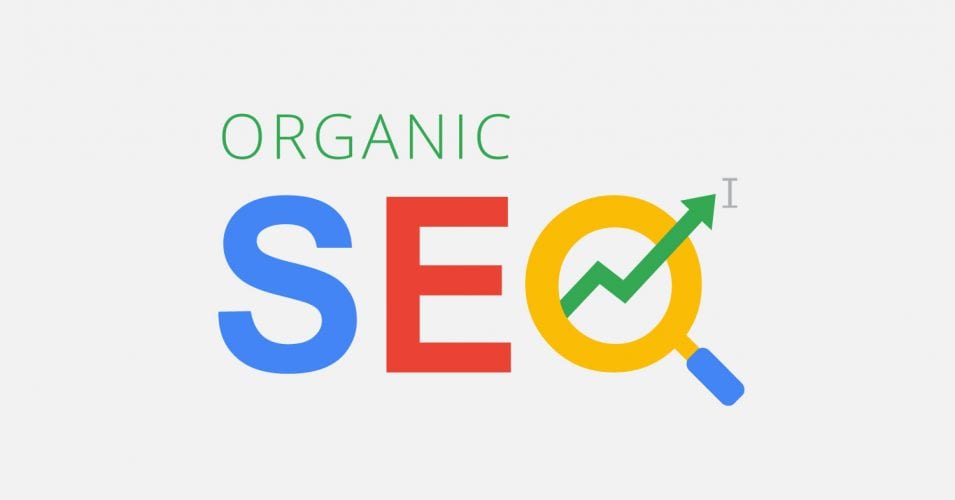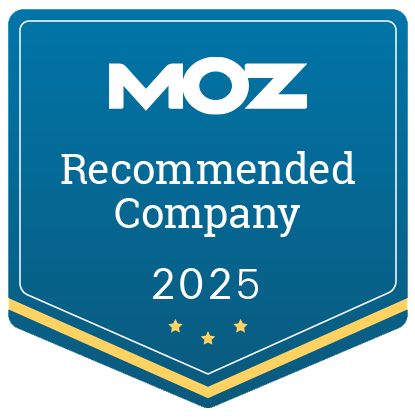At its core, organic Search Engine Optimization (SEO) is unpaid SEO. Unlike a Google or Facebook Ad, which requires payment for impressions, organic SEO is about earning traffic with content. The goal is to create engaging, keyword-focused blog posts that Google wants to index. This means you don’t have to pay for an ad targeting your audience to drive traffic to your site. In the long run, this is a more cost-effective and valuable approach for your company.
However, this doesn’t mean that organic SEO is free to create. You will still need to have high-quality webpage and blog post copy. Over time, you will see the true value of organic SEO, as you won’t need to pay anything to continue to benefit from your content.
Where Do You Begin?
You likely have some knowledge of how SEO works if you operate a business in today’s tech-driven world. However, many business owners have been around for years and still haven’t become acclimated to the way things work today. A great place to start learning is with this article, our guide on SEO for Dummies. This is where we cover all the basics of analytics tools, website performance, and general SEO knowledge that you can put to work for your company.
One of the first places to start to improve your organic SEO is with local SEO. Using local SEO involves marketing your brand to the community closest to your physical location and promoting the product or service that you offer to your market audience in that area. The goal is to attract the attention of your target demographic in a way that brings them back to your company every time they need your services.
This facet of digital marketing is essential for brick and mortar stores to grasp to improve their marketing strategy. You need to generate customers and conversions to facilitate a Google ranking that will place your business at the top of a search. This step will lead to a nearly immediate increase in foot traffic.
One of the Basics—Grammar
So, after being in business for some time, you’ve gained a reasonably firm grasp on the general idea behind SEO, but it’s the small things that gnaw at you. How to refer to your company and its business model is one of them. SEO is an acronym for Search Engine Optimization—so are you “a SEO company” or “AN SEO company?” If improper grammar and diction get under your skin, knowing which article to use may confound you. Since SEO begins with the letter “S,” one would wrongly tend to assume it should be “a SEO company.” Acronyms, however, should be preceded by the article that pertains to the way they are pronounced. Since SEO begins with the “ess” sound, the correct way to state the phrase would be “an SEO company.” Sounds much better, right?
Web Design Optimization
You already know that your website is an essential tool in your marketing strategy, but how well does it function across multiple devices? Consumers today are quick to use their smartphones to find anything they need at any given time, but many people still use their computers for shopping and searching the web. Having an SEO-responsive design is a must in today’s business world, which will enable your site to adapt to viewing on any screen size, eliminating the need for separate versions of your website for desktop and mobile devices.
Now let’s take a closer look at how to execute a successful organic SEO campaign.
Organic SEO Takes Time
If you’re looking to see quick results from organic SEO, it’s important to note that this method takes time. You can’t expect to double your traffic instantly by publishing one blog post. Organic SEO requires dedication and consistency to yield results.
In addition to time, successful natural search is built on your knowledge of previous campaigns. This means monitoring your rankings, studying what worked, and being honest about which efforts fell flat. For your campaign to be successful, it’s also critical that you determine what your clients are interested in. Otherwise, you might waste time crafting a campaign that fails to make an impact.
The More Organic SEO, The Better
The more webpages and blog posts you create and publish, the better chance you have at building your organic SEO presence. Therefore, to ensure you’re producing as much valuable content as possible, it’s best to create a content calendar. This will help you lay out your SEO strategy and ensure you are taking advantage of trending keywords. Additionally, it will give you a bird’s eye view of what you’ve already posted so that you can develop your strategy for the future.
Create an Innovative Strategy
Developing creative SEO strategies and keeping up with the ever-changing Google algorithms can help you stay ahead of your competitors. If you rely on the same strategies that are widely available and recommended, you won’t stand out in your field. To differentiate yourself, you have to know what content currently ranks in Google and how you can improve upon what’s there. A good way to determine this would be through competitor analysis. By looking at what’s working for your competitors, you can fine-tune your own strategy. Additionally, you can conduct keyword research to determine which search terms are seeing the most volume.
It’s important to note that the structure of your content is also essential for improving your organic SEO. You must include the proper SEO tags, as well as H1s, H2s, and H3s to break up your content structure. This ensures that it’s easy for your readers to read and digest the content you are putting out. For example, a blog post that is bogged down with paragraphs upon paragraphs of text would likely rank lower than one that includes bullet points and various headers.
Above all, organic SEO performs best when you create interesting content that your audience finds helpful. Your content should be worth taking the time to read and share.
Organic SEO & Digital Marketing
Organic SEO is just one of the many elements of digital marketing. Well-written and keyword-informed blog posts can surely stand the test of time and continue to provide benefits long after they are published. To maximize the results of a digital marketing campaign, organic SEO should be used in tandem with other proven strategies, such as off-site SEO and paid advertising campaigns.
Looking for a marketing team that can create and execute a successful organic SEO and content strategy? Zero Gravity Marketing can help. Contact us today to set up a meeting with one of our SEO experts.
Have some additional questions? Check out a few of the organic SEO FAQs:
Q: What does SEO mean?
A: SEO is an acronym that stands for “Search Engine Optimization”. The goal of SEO is to hyper-focus your marketing to reach a specific target audience.
Q: Why is SEO so important?
A: Search engine optimization, when handled correctly, is a strategic advantage to ranking above your competition in internet search results. When you have a higher position on search engine rankings, you have a better chance of increased visits to your website.
Q: What are SEO tools?
A: There are a number of SEO tools available that help track and monitor your position in search results. Knowing where your pages are ranking for specific key terms can help you to make strategic decisions as a marketer, regarding what you should include in your on-site messaging.









